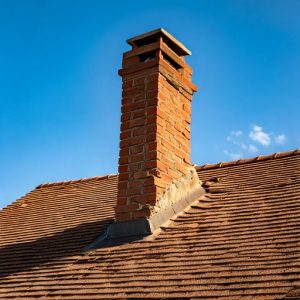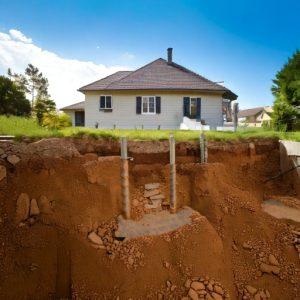Builders give careful consideration to whether the foundations they lay will be able to sustain the house they build on top of them, and this is understandable. However, laying a solid foundation requires more than just building a foundation. It’s crucial to take the soil quality into account across the foundation’s whole footprint, for instance, while constructing a home with a pier and footing foundation or a step footing foundation. If the builder doesn’t take the time to comprehend and account for the state of the soils beneath the footing foundation, it could eventually cause the homeowner some major issues. It’s crucial to consider the soil beneath your foundation before you build it in order to prevent future foundation repair expenses.
Why Is Soil Important for Foundations?
A typical house foundation footing can be supported with no problems by typical soils. But occasionally, the soil quality surrounding a property isn’t consistent, and that’s when problems start to appear. For instance, if the soil beneath one of the footings is softer than the soil beneath the other footings, the section of the house above that footing may settle more quickly and deeply than the other components of the building, necessitating the possible need for significant foundation crack repair.
It is crucial to pay close attention to the soil’s quality just below each footing. Because the depth of the soil pressure is approximately equivalent to the breadth of the footing. For instance, a standard 16-inch footing indicates that the first 16 inches of soil beneath the footing are under the greatest soil-bearing load. The amount of soil bearing pressure drops by about half after the first 16 inches. And again, after the further 16 inches of depth, by almost two-thirds.
The Importance of Thoroughly Compacted Soil
Although in this example the top 16 inches are the most crucial, it is simple to understand how having soft or sandy soil a little deeper can affect how your foundation settles. Because of this, it’s crucial to check that the dirt is completely compacted before laying the foundation. Before moving further with the excavation, it’s generally a good idea to consult with an engineer if you come across clay, soft soil, or sandy soil anyplace on your property.
Other Details to Consider
Although it’s one of the most crucial factors to take into account when laying your foundation, the quality and density of the soil beneath your footings is by no means the only one.
Here are some other variables to consider:
- Dimensions of the footing: The weight of the house will be distributed more evenly into the soil the wider the footing. You may feel more stable if your footings are wider.
- Footing placement: A footing that is off-center can cause issues for the wall because the weight won’t be dispersed equally. The structure will also be subjected to unnecessary stresses.
- Water in the soil: If you discover any during the excavation for your foundation, make sure to check with an engineer. This can be a major warning sign. To increase stability, you might need to pile stones into the form’s bottom and compact them into the mud.
You want your house to be as stable as possible, but Mother Nature doesn’t always cooperate. Keep these pointers in mind before pouring the foundation for your home, and you can avoid serious problems later.






